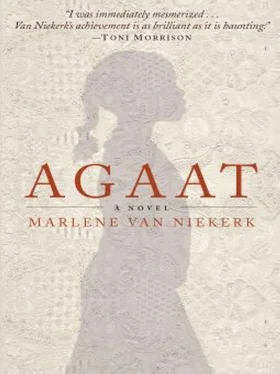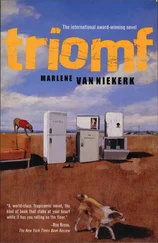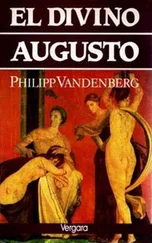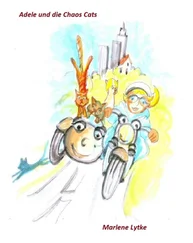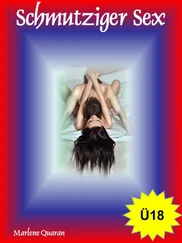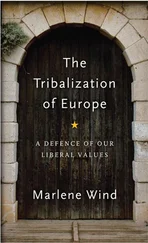She carries the basket to the pantry, she takes the egg cartons off the shelf to fill them. How the good hand takes the red-brown eggs, the dunnish dust-brown ones, the small-yolked ones one-by-one out of the basket and assesses them, the largest apart, for selling in town, how she eases them into the little hollows, large ends downwards, half-dozens full. A quarter-hour chimes. From the time it takes, I guess that there are more than a dozen eggs today. Now she will write the date on the box, as we always did. What day would it be today?
A map of days, a calendar, that I have and that she writes on every day. But I can’t see that far any more. And what do I care for time? One day is like another in this decoction she has devised for me. Purgatory according to Agaat.
There was peace and tranquillity after Jakkie’s departure, after Jak’s death, for the first time in a long while on Grootmoedersdrift. Not an obdurate eye, not a hunched shoulder, and the mouth gentled for a change, the lips often livened up with a smile. How long was it, the truce? Five, six, seven years? Until I got sick, but the first year, year-and-a-half, while I could still move myself, with my walking sticks, with the walking frame, in the wheelchair, then still it was all love and harmony. I could hardly believe it, sheer bliss, I thought, Freuden sonder Zahl, to enjoy my old age with her. When did it change? When I could no longer speak, when I could no longer write, when I became completely helpless and had to come and lie here? Was it that that released the poison? That I was more dependent on her than I’d ever been? I’ve always been that, from the beginning. But with every step of my retrogression it felt to me she was becoming more rancorous, more furious. Had she pent it up all those years?
I hear her going back to the kitchen, I hear the water from the tap, that’s for filling the kettle for coffee. Her late-afternoon coffee so that she can remain awake for the evening shift. The silence while she drinks it. I can feel her thinking something, considering something. Then she comes down the passage, more slowly, stands still and turns back to the pantry.
It’s very quiet.
Agaat has a plan. The one sprouts forth from the other. The drill has struck water.
I pretend to be asleep when she comes into the room. I spy on her through my eye-lashes. She regards the wall next to my bed where the blue specks of light play. Didn’t think it would work so well, did you? I wish I could say that to her. I see a little incipient smile. She comes closer, even closer, she comes and stands by my bed, bends, until her head is at my height. There’s a wisp of straw in her hair behind the gable of her cap. Lay-away chicken nest! She comes upright, looks down at me. I open my eyes and find hers.
I’ve seen it! I blink.
I flash my eyes at the wall, at the mirror, to and fro, try to move my eyebrows. Thank you very much! It’s wonderful, Agaat, my garden.
Mirror, mirror, on the wall, who has the loveliest garden of them all? she asks.
Satisfaction on her face.
She puts her hand into her apron pocket.
Close your eyes.
She places something in my hand, something cool and smooth it is, she holds her hand under my hand.
Open your eyes.
It’s a big brown egg.
A double-yolk, I bet, she says. Tonight I’m making you scrambled egg, Ounooi, you’ve been eating far too little of late. Not a lot into you, not a poop out of you. And I haven’t embroidered a stitch. We must eat early tonight. I want to get working.
Work, for the night is coming, that’s what I think, but what I signal is: that will be nice, I’ve been wanting an egg for a long time.
Then that’s fine, says Agaat, a good appetite is not to be sneezed at and a wink is as good as a nod to a blind horse.
I close my eyes. I can’t trust my gaze. Better not take any chances. Give no cause for misunderstanding. Rejoice in the success of the first round.
I hear her clatter in the kitchen. It sounds extremely lively in there tonight. Renewed effort? At what? Courage for what lies ahead? How long? The yolk and the white are whisked together. From cradle to grave. The screen door slams. She goes in and out at the kitchen door. Scrambled eggs. What an ado simply to scramble an egg? Sounds like a five-course. I can feel her excitement. Positive energy. The Cape is Dutch again, how long can it last?
She brings my tray. A candle? A vase? And, for the first time again in how many months — a twig of the rambling rose! Crepuscule! Floppy copper-coloured petals, the inside darker, a lively rust colour, a Cape robin’s bib. The evening has been brought indoors for me.
The eye is the window of the soul, but a mirror helps, says Agaat. A picture of primness, but I can see she’s very pleased with her handiwork.
She cranks down my bed.
Lower the sheep, she says through her breathing.
She pulls herself up on her stool.
Raise the girl, she says. Her voice is soft, palliative.
The egg goes down well. She has brought it to the exact degree of just-done, but still good and moist, and, if I must judge, strained it twice through a tea-strainer so that the texture is uniformly smooth.
Without hurry she spoons up the egg pulp in small spoonfuls, and brings it inside, sees to it that I swallow, once, twice, everything without emphasis.
Her little hand is resting on my waist, in its white crocheted sleeve. With that she gauges my breathing so that she can bring in the teaspoonfuls at the right rhythm and tempo. Her starched clothes make a sound every time she leans forward, the shoulder bands of the apron as they tense and relax, her arms as they rub against the turn-ups of her sleeves. The stool creaks rhythmically as she shifts her weight.
I am hungry. There is something beneficent about the taste of the egg. It tastes of butter and cream. Agaat wants to pamper me, and herself, for the breakthrough, for my gratitude.
I understand the bustle back there. I can see her, spatula in the little hand, the bowl with the whisked-up egg in the strong hand, standing by the frying-pan in which the butter is already foaming, and then suddenly having an idea, putting everything down, removing the pan from the heat, and in the falling dusk going to the dairy to ladle a little jug of fresh cream from the pail. For scrambled egg de luxe. And how the one inspiration inspires another. In and out at the screen door as it occurs to her. She went and picked a twig of parsley, from the pot next to the back door, and put it on the side of the plate, too dangerous even to sprinkle finely-chopped on the egg, but for the look, and for the smell. She crushes the leaves between the fingers of her right hand, she holds it under my nose. Her lips come forward, her eyes glisten.
I smell it, Agaat.
Ai, Ounooi Ounooi, say Agaat’s eyes. She looks away. My face is too much for her. She divides it up into manageable fragments. Under my nose she mops up a drop, from my forehead she whisks away something that’s not there. She puts another teaspoonful of egg into my mouth.
I eat a highway through the double-yolk.
It’s a wind-still evening. Agaat has opened the swing doors so that I can hear the yard-noise of milk cans and the returning tractors and the closing of shed doors.
Now it has gone quiet. Now I hear only the sprinklers and the pump down by the old dam, that Dawid will go to switch off at ten o’clock. Closer by is the twilight song of thrushes and Cape robins, a light rustling every now and again in the bougainvillea on the stoep, a few slight sleeping sounds of the small birds, sparrows, white-eyes, that settle there for the night in the centre of the bush.
On the mirror an abstract painting is limned, midnight-blue like the inside of an iris, with the last dusk-pale planes and dark stains from which one can surmise that the garden is deep and wide, full of concealed nooks, full of the silence of ponds, full of small stipples of reflected stars on the wet leaves, full of the deep incisions of furrows. Green, wet fragrances of the night pour into the room, from water on lawns and on hot-baked soil and dusty greenery.
Читать дальше
